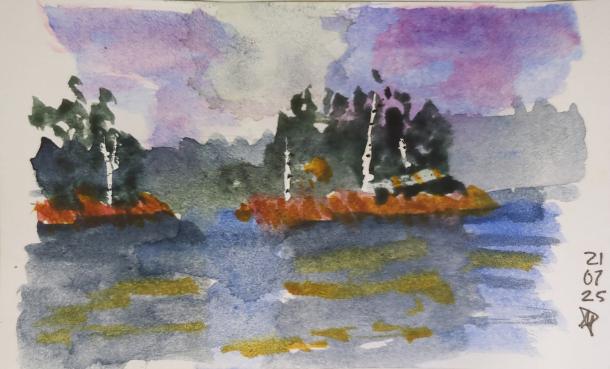
In cancer, one of the measures that oncologists use commonly is something called performance status. While it sounds like a readiness score for an Olympic performance, it is much more mundane. Performance status refers to how well a person with cancer can perform their usual daily activities and maintain their physical function.
ECOG (Eastern Cooperative Oncology Group) Performance status scale ranges from Grade 0, which is fully active, able to carry out all pre-disease performance without restriction, to Grade 5, which is dead.
In my last conversation with my oncologist, my status moved from 0 to 1. When I protested that I was still walking three or four kilometers morning and evening, he pointed out that I wasn't running anymore and that I had to stop on my long hill to catch my breath. The definition we use for Grade 1 is: Restricted in physically strenuous activity but ambulatory and able to carry out work of a light or sedentary nature, e.g., light housework, office work. I realized, to my chagrin, that it was true. This change in status means I now have to be more mindful of my physical activities and take more breaks, which has been a significant adjustment for me.
When my radiation finished, the plan was to wait a couple of months and then follow up with a CT scan. When they called to book the scan, medical imaging had booked it for the end of July. This date was much longer than I had expected. So much so that I called to confirm the date. Once they confirmed the date, I cancelled my radiation followup since there wasn't much point in meeting without a scan to look at. I did leave my oncologist appointment in place, but it became a virtual appointment. He told me he was working on the Dato-DXD trial, having it moved to Vancouver, but there were some hiccups.
At the end of July, I had my scan and then my followup appointment to discuss the results. He didn't have the formal results from the radiologist, but popped open the scans and discovered that I had about what he estimated was a liter and a half of liquid in my right lung. Known as pleural effusion, the only symptoms I experienced were a deepening cough and greater fatigue. I'm waiting for an appointment for drainage. In the meantime, I'm keeping up with my walking and exercising.
As the cancer vaccine trial is no longer an option, I am faced with the daunting task of choosing the next treatment path. The decision is not straightforward. I have the option of amivantamab in combination with pemetrexed, or the Dato DXD clinical trial. While I am leaning towards the clinical trial, my oncologist has a different perspective. We are scheduled to meet on August 21, after the fluid drainage analysis, to make a decision. Amidst this uncertainty, my travel plans to the UK and Spain remain unchanged.
The last few months have been a time of rest and recuperation. I have been working on some writing and managed to attend one open mic at Poetry in the Park. I thought I would be doing more work on the memoir, but it seems to be languishing. I keep finding other small projects to work on that keep me from it.
I participate in a small group of lung cancer patients here in BC that meets once a month on Zoom and then uses Facebook Messenger as a tool to connect between times. This group has been a significant source of support and understanding for me. We decided after the successful run that it would be nice to have another get-together. We gathered in Trout Lake Park. The gathering lasted three hours. Even though we were in the shade, I managed to pick up a bit of sunburn. Sharing our experiences and tips for survival was a further bonding experience.
On Sunday, I had the honor of reading a passage from Hosea. His prophetic voice comes through loud and clear with the message that we are loved as a parent loves their child. The child may be disobedient, but it does not diminish his love for us. As I struggle with the upgrading of my performance status, the reading reminded me that God loves me and continues to care for me.